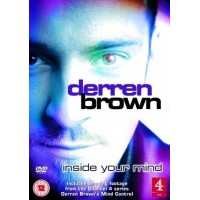The Retirement Notes Lecture For Conjuror's Corner by Tom Dobrowolski
- Product Code: I3599
- Reward Points: 5
- Availability: In Stock
- $4.99
-
$1.99
- Price in reward points: 199
Tom dobrowolski - The Retirement Notes Lecture for Conjuror's CORNER MAY 25,2020
(Video only)
The all new 2020 Lecture Notes "The Retirement Notes - The Magician Who Became a Banker Who Became a Magician" consists of 11 never before published Magic routines from myself, Curtis Kam (2 items: one which after research appears to be a new magic plot) ,John Bannon, Jack Carpenter, Jeremiah Zuo, Stephen Hobbs, Shannon Clark, Tyler Wilson (this one will have you talking!) and Richard Hucko. You'll see and learn magic with the usual cards and coins but also magic with pocket calendars table cloths (you read that right, tablecloths) and more. As with all my notes it's ALL magic you will learn AND use!
Here's what's in the notes.
WHERE'D I LEAVE THAT? Tom Dobrowolski
Two cards (one in a named position in the deck and one your breast pocket) transpose. As a bonus, a name card travels to the same breast pocket.
STOP ME IF I TOLD YOU THIS BEFORE Tom Dobrowolski
My take on the classic Red Hot Momma: the beginning of the effect follows the classic, but then after the red card changes to the second selection, the first selection is produced from the card box and the second selection is changed back into a blue card, getting you back to where you started.
BACK IN MY DAY Curtis Kam
This is a version of the "Card Diary" effect which, you'll be pleased to hear, requires minimal memorization, likely none at all, and works from a shuffled deck. The Diary can and should be made from a cheap pocket calendar, (enabling you to reconstruct it each year, if you wish) and it also functions as a no-palm card to envelope, making maximum use of the pocket space it occupies.
THE HERO'S TALE Curtis Kam
A new effect in card magic? With the aces, no less. There are many "spectator cuts to the aces" or "spectator finds the aces" but have you ever seen a routine where the spectator magically produces the aces? I can't think of any. And I'm sure you can come up with a handling that works for you. I hope you'll want to, since the plot is inherently engaging, and the spectator leaves feeling like a hero.
EARLY BIRD SPECIAL The Meatball Miser's Jack Carpenter
This is a go-to coin piece for Jack. It is angle-proof, does not use complicated sleight of hand, and can play big relatively big. For guys who do not do coin magic (like me!) but still want a way to get a close-up production of lots of coins, here you go..
GET OFF MY LAWN Richard Hucko
This is a direct and effective sandwich trick that you can do if you do Richard's Mechanic's Shift. If you cannot do the Mechanic's Shift, what are you waiting for? Richard allowed us to provide you a write- up. So get cracking.
HOW DID THAT GO AGAIN? Jeremiah Zuo
You have a spectator select a card, promising to show them an excellent trick that you saw another magician do. However, you quickly find that you cannot remember how it goes. Each time you change your mind about how you remember the trick, reality changes to match (E.g., "The card was face-down...no wait, face-up." *card changes from face-down to face up*). Finally, you remember that the cards were shuffled face-up into facedown before the selected card was found. Unfortunately you cannot remember how, so you just fix the entire deck, minus the selection.
KID'S THESE DAYS (SKYE'S SECRET) Stephen Hobbs
... one day Skye (Stephen's son) came home from school, pulled a quarter out of his pocket, carefully showed me both sides, flipped it in the air, called heads, caught the quarter, and slapped it on the back of his hand. It was heads. He did it again. He flipped the quarter and had me call heads or tails in the air. I called tails. The coin came up tails. But I wasn't fooled, right? I had read Martin Gardner's massive Encyclopedia of Impromptu Magic (in the beautiful version released by Todd Karr in 2015) and I knew about glimpsing the coin as you caught it and controlling which way it faced when you slapped it on the back of your hand. I knew about putting a dab of glue on the coin so you could feel which side was which and control which way the coin landed.But then Skye flipped the quarter in the air and called it with his eyes closed. Then Skye borrowed a quarter from me and did it again. And again. And I was fooled.
MAN OF THE CLOTH Tyler Wilson
The spectator shuffles the deck [photo 1] as much as she wants [photo 2]. When she's satisfied [photo 3] that it's truly mixed [photo 4], she cuts the deck into four piles [photo 5] on the table [photo 6].
Being the attention hog he is [photo 7], the magician looks to the rest of the audience [photo 8] and asks, "What's more impressive: what she just did, or..." suddenly, he whisks the tablecloth away like a beast [photo 9] without disturbing the four piles of cards on the table [photo 10]. "... what I just did?"
The audience [photo 11] raves that your stunt was far more impressive [photo 12]. The magician responds [photo 13], "I get why you say that, I do, but I don't think you understand how impressive her feat truly was." The four piles are turned over to reveal the four Aces [photos 13 - 27].
BORERLAND PREDICTION John Bannon
Three cards are removed from the deck and placed face down on the table. The performer asserts that when three cards are isolated in this fashion, there is a confluence that exerts a powerful influence on one particular card in the deck. The three cards each suggest a different attribute: a range, a suit, and value. A truly random card is selected by the spectator and the 3 prediction cards are shown to accurately reveal the selected card.
DOUBLE THOUGHT Shannon Clark
A deck of cards is shuffled; a number of cards are spread and the faces are shown to the audience. Two spectators freely think of any card in the spread. The spread is then lost in the pack. To prove that nothing 'tricky' has taken place, the magi shows totally random amounts of cards to the spectators so that they can confirm that both thought of cards are still present in the deck. With absolutely no questions concerning the identities of the cards, two small packets of cards are made in front of each person. They both name the card they are thinking of and spread the tabled cards finding the two thought of cards face up in the packets.
Reviews (0)
Related Products
Ultimate Self Working Card Tricks Vol.4 by BBM
The best selling Ultimate Self Working Card Trick series is the gold standard for sleight-free card ..
$2.99 $5.99
Deal Or Not Deal by Michael Chatelain
Language:IN French EFFECT A perfect close-up routine! An eff..
$1.99 $4.99
Scop by Doosung Hwang
A project nearly a decade in the making, SCOP (Super Clever Open Prediction) is a revoluti..
$2.99 $5.99
The S.A.M. Lecture (2020-11-06) by Curtis Kam
Curtis Kam - The S.A.M. Lecture (2020-11-06)..
$2.99 $5.99
The Retirement Notes by Tom Dobrowolski
Here's what Tom has to say about this KILLER new set of notes: "The all new 2020 Lecture Notes “The ..
$2.99 $5.99
Deck Ja Vu (2020 Version) by John Carey
An amazing and practical self-working miracle that allows your spectators to become the stars of you..
$1.99 $4.99
Away We Go by Tom Dobrowolski
An impromtu no gimmicks 3 selected cards across routine I developed that was originally published in..
$0.99 $20.00
Recommend
The 3D Magic Spectacular by Derren Brown
3D Magic TV show Derren Brown - The 3D Magic Spectacular Description: http://vimeo.com/7671660 M..
$1.99 $4.23
Svengali by Derren Brown
Look into my eyes, look into my eyes, the eyes, the eyes, not around my eyes, look into my eyes??Tha..
$1.99 $4.99
Something Wicked This Way Comes by Derren Brown
Mind -site program Derren Brown - Something Wicked This Way Comes 2006 field program in the UK As..
$1.99 $4.23
Science Of Scams by Derren Brown
Super powers phenomenon decryption Derren Brown - Science Of Scams Multiple super powers phenomena..
$1.99 $4.99
Richard Dawkins - The Enemies Of Reason by Derren Brown
Derren Brown & Richard Dawkins - The Enemies of Reason Evolutionary biologist and best-selling ..
$2.99 $5.23
Pure Effect by Derren Brown
Mentalism teaching Derren Brown - Pure EffectPDFThis is a fantastic book if you wish to learn deeper..
$2.99 $5.89
Plerophoria by Derren Brown
Derren Brown - Plerophoria ( Chinese subtitles ) Darren Brown classic magic Plerophoria, the effe..
$1.99 $4.23
On The Art Of Cold Reading by Derren Brown
Magic Art Interview sheet Derren Brown - On The Art of Cold Reading Cold Reading first to enjoy ..
$1.99 $4.99
Miracles For Sale by Derren Brown
Derren Brown - Miracles for Sale With the cameras in hot pursuit, Derren faces his toughest projec..
$1.99 $4.48
Mind Reader - An Evening Of Wonders by Derren Brown
Performing special Derren Brown - Mind Reader - An Evening of Wonders British Channel 4 09 premier..
$1.99 $4.23
Mind Control (1-6) by Derren Brown
Master Mind Control series Derren Brown - Mind Control (1-6) The film shows the mind magician Brown..
$2.99 $5.23
Messiah by Derren Brown
Messiah "Brown playing the world " (Derren Brown: Messiah). This one-hour program originally in t..
$1.69 $4.99
Investigates (1-3) by Derren Brown
Derren Brown - Investigates (1-3) Derren Brown InvestigatesDerren Brown Investigates began a run of..
$2.99 $5.23
Inside Your Mind by Derren Brown
Derren Brown - Inside Your Mind If you have not met someone can control your mind , you will..
$1.69 $3.98
Hero At 30000 Feet by Derren Brown
Mentalism show piece Derren Brown - Hero at 30000 Feet Derren Brown, the acclaimed psychological i..
$1.99 $4.23
Fear And Faith by Derren Brown
Brown Fear 2012 latest TV show and Faith 1-2 Derren set The latest TV show in November 2012...
$1.99 $4.99

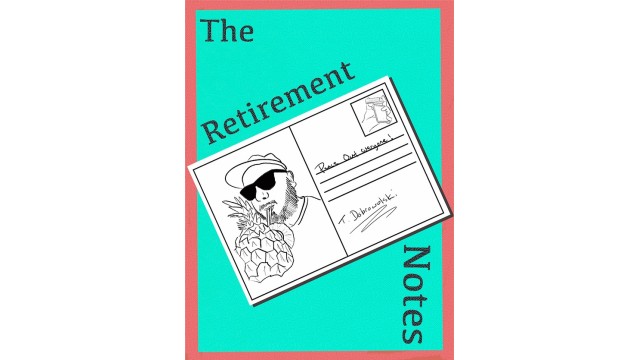










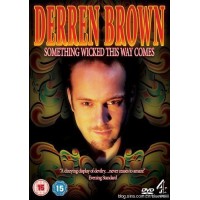

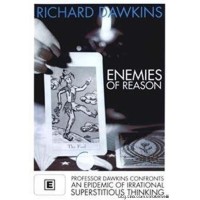
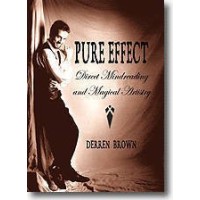
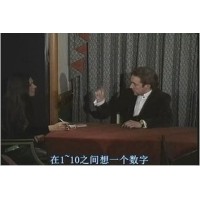


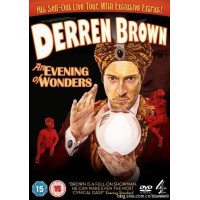
-by-Derren-Brown-200x200.jpg)

-by-Derren-Brown-200x200.jpg)
